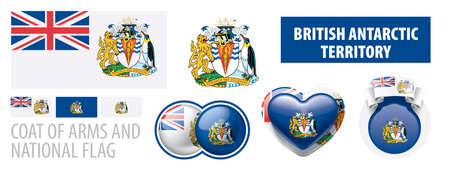Introduction: Understanding Self-Awareness at Work
In the context of British work culture, self-awareness is more than just a personal trait—it is a foundational quality that shapes how professionals interact, communicate, and collaborate. At its core, self-awareness refers to an individual’s ability to recognise their own strengths, limitations, emotions, and how these elements influence behaviour within a team setting. In the UK workplace, where subtlety, respect for hierarchy, and understated confidence are highly valued, being self-aware plays a significant role in setting the tone for professional conduct. It encourages individuals to reflect on how their actions may be perceived by colleagues and helps foster an environment built on mutual understanding and respect. By understanding oneself better, employees become more adept at navigating common workplace scenarios—be it giving feedback, managing conflict, or supporting team members. Below is a quick comparison illustrating what self-awareness can look like in practice versus its absence:
| With Self-Awareness | Without Self-Awareness |
|---|---|
| Considers impact of words before speaking | Speaks impulsively, risking offence |
| Accepts constructive feedback graciously | Becomes defensive or dismissive |
| Acknowledges personal strengths and gaps | Lacks insight into own abilities |
This foundation of self-awareness is integral to building stronger British teams where communication flows smoothly and collaboration thrives.
2. The British Approach to Workplace Communication
Self-awareness is at the heart of effective communication in the British workplace, where conversations are often shaped by politeness, indirectness, and a strong sense of cultural nuance. Understanding how one’s words and actions may be perceived is key to navigating professional relationships in the UK. This self-reflection allows individuals to tailor their communication style—striking a balance between clarity and diplomacy—which helps to avoid unnecessary conflict and foster an atmosphere of mutual respect.
The Nuances of Polite and Indirect Communication
In Britain, directness can sometimes be mistaken for rudeness, especially in sensitive discussions or feedback sessions. Self-aware team members are attuned to these subtleties; they know when to soften their language or use understatement to maintain harmony. Common phrases like “I might suggest,” “Perhaps we could consider,” or “Would you mind if…” exemplify this tactful approach. Self-awareness ensures that messages are delivered with empathy, reducing misunderstandings and promoting inclusivity within teams.
Key Features of British Communication Styles
| Communication Feature | Description | Role of Self-Awareness |
|---|---|---|
| Politeness | Maintaining courteous language, even during disagreements | Helps avoid offence and builds trust among colleagues |
| Indirectness | Using subtle cues instead of blunt statements | Ensures feedback is constructive rather than confrontational |
| Cultural Sensitivity | Adapting communication based on context and audience | Makes interactions more inclusive and respectful |
| Humour & Understatement | Defusing tension with wit or downplaying achievements | Keeps the workplace environment light yet professional |
Practical Example: Giving Feedback in a British Team
A self-aware manager in a British company might say, “I wonder if it might be helpful to look at this section again?” rather than a direct “This part is wrong.” This approach not only preserves the recipient’s dignity but also encourages open dialogue and collaborative problem-solving. By understanding and embracing these cultural norms through self-awareness, teams can create stronger bonds and work together more effectively.

3. Fostering Productive Team Dynamics
In British work culture, self-awareness is a cornerstone for building teams that function smoothly and achieve shared goals. When individuals take time to recognise their own strengths and weaknesses, they are better equipped to contribute positively to the team dynamic. Rather than shying away from honest self-reflection, British employees are encouraged to embrace it as a tool for personal and collective growth. Self-aware team members typically show greater understanding towards colleagues’ perspectives, making space for open dialogue and mutual respect.
How Self-Awareness Shapes Team Balance
A key advantage of self-awareness is its role in promoting balanced teams. By openly acknowledging what each person brings to the table—and where their limitations lie—teams can allocate tasks more efficiently and avoid misunderstandings. This approach reduces friction and creates an environment where everyone feels valued for their unique contributions. In the UK workplace, this often translates into clear communication, fair delegation, and less micromanagement.
Strengths and Weaknesses: A Practical Overview
| Aspect | Self-Aware Employee | Team Benefit |
|---|---|---|
| Communication | Knows when to speak up or listen | Reduces conflicts, improves clarity |
| Task Management | Admits if a task isn’t their forte | Leads to better task distribution |
| Collaboration | Recognises others’ expertise | Encourages respect and trust |
| Problem-Solving | Acknowledges own blind spots | Invites diverse input for solutions |
Cultural Nuances in British Teams
The British approach to teamwork values understatement and subtlety—qualities that pair well with self-awareness. Employees who understand themselves tend to avoid overstepping boundaries or dominating discussions, which helps maintain harmony. Instead of boasting about achievements, self-aware team members focus on collaboration and support, embodying the understated confidence so characteristic of UK workplaces. Ultimately, fostering self-awareness at every level leads to teams that are not just effective but also genuinely supportive of one another.
4. Resolving Conflict with Tact
Within British work culture, self-awareness plays a crucial role in navigating workplace disagreements. Rather than confronting issues head-on or engaging in open disputes, British professionals often favour a more understated and tactful approach. This is where self-awareness becomes invaluable—enabling team members to recognise their own emotional triggers and biases before addressing conflicts.
Empathy is another key ingredient. By putting oneself in a colleague’s shoes, it’s easier to grasp the nuances of the disagreement and respond appropriately. Maintaining professionalism, even during heated discussions, is highly regarded in UK workplaces. Subtle language, active listening, and careful word choice are all strategies that reflect both self-awareness and respect for others.
Typical British Strategies for Conflict Resolution
| Strategy | Description | Benefit to Team Dynamics |
|---|---|---|
| Subtle Communication | Using indirect language to raise concerns without causing embarrassment. | Reduces defensiveness; encourages openness. |
| Active Listening | Paying attention to both spoken words and underlying emotions. | Helps uncover true issues; fosters mutual understanding. |
| Private Discussion | Handling disagreements one-on-one rather than in public settings. | Protects dignity; avoids unnecessary escalation. |
| Empathetic Responses | Acknowledging the other person’s feelings while expressing one’s own perspective. | Builds trust; promotes collaborative solutions. |
| Professional Distance | Maintaining composure and avoiding personal attacks. | Keeps focus on issues rather than individuals. |
By combining these approaches with self-awareness, British teams can turn potential conflicts into opportunities for growth and collaboration. Ultimately, this blend of subtlety, empathy, and professionalism supports healthier interactions and strengthens overall team cohesion.
5. Promoting Diversity and Inclusion
In British work culture, diversity and inclusion are more than just buzzwords—they’re essential values that shape productive and harmonious teams. Self-awareness plays a pivotal role in this context, particularly when it comes to respecting different perspectives and encouraging open-mindedness within the multicultural landscape of UK workplaces.
Understanding the Impact of Self-Awareness
When team members are self-aware, they are better equipped to recognise their own biases, preferences, and communication styles. This awareness helps prevent misunderstandings and allows individuals to appreciate the unique contributions of colleagues from diverse backgrounds. In British offices, where people often come from all over the world, fostering self-awareness ensures everyone feels valued and heard.
Key Benefits of Self-Awareness for Diversity and Inclusion
| Benefit | Description | UK Workplace Example |
|---|---|---|
| Respect for Differences | Encourages an attitude of respect towards varying opinions and cultural practices. | Acknowledging religious holidays or dietary needs in office gatherings. |
| Open-Mindedness | Helps employees stay receptive to new ideas and approaches. | Welcoming alternative problem-solving methods in project meetings. |
| Reduced Conflict | Minimises miscommunications by understanding personal triggers and reactions. | Addressing disagreements calmly rather than letting them escalate. |
| Inclusive Collaboration | Makes it easier to involve everyone in discussions and decision-making. | Ensuring all voices are heard during team huddles or brainstorming sessions. |
Cultivating an Inclusive Mindset
The British approach to teamwork often values politeness, patience, and subtlety. By being self-aware, employees can navigate these nuances with greater sensitivity. For example, they can spot when someone might feel uncomfortable speaking up and actively encourage participation. Over time, this creates a psychologically safe environment where innovation thrives because all viewpoints—regardless of background—are genuinely considered.
6. Practical Strategies to Enhance Self-Awareness
In the context of British work culture, nurturing self-awareness is essential for building cohesive and effective teams. Below, we offer actionable tips and highlight local resources tailored for UK professionals seeking personal growth and stronger team dynamics.
Actionable Tips for Everyday Self-Reflection
- Journalling: Set aside ten minutes at the end of each workday to jot down your thoughts, emotions, and reactions to key events. This simple habit helps you notice patterns and triggers in your behaviour.
- Solicit Feedback: Ask trusted colleagues for honest feedback on your communication style and teamwork. Be open to constructive criticism and use it as a learning opportunity rather than taking it personally—a very British approach to continuous improvement.
- Practice Mindful Listening: When engaging in conversations, focus fully on the speaker without planning your response. This fosters empathy and deeper understanding within your team.
- Set Personal Development Goals: Identify one area each month where you’d like to improve (e.g., handling stress, active listening), then track your progress regularly.
Local Resources for British Professionals
| Resource | Description | How It Helps |
|---|---|---|
| Mind UK Workshops | Mental health charity offering workplace self-awareness training sessions nationwide. | Provides practical tools for recognising emotional triggers and improving wellbeing at work. |
| CIPD Learning Hub | The Chartered Institute of Personnel and Development’s online platform with courses on self-reflection and leadership skills. | Enhances knowledge of self-management, emotional intelligence, and interpersonal communication. |
| Mental Health First Aid England (MHFA) | Accredited courses teaching professionals how to support themselves and others’ mental health. | Builds awareness of personal mental health needs while strengthening empathy within teams. |
| Time to Change Employer Pledge | A movement encouraging open conversations about mental health in the workplace. | Cultivates a supportive environment where self-awareness can thrive through peer support. |
Tapping into British Workplace Traditions
Embrace the traditional “tea break” as a moment for informal reflection or gentle check-ins with colleagues. These small rituals contribute significantly to building trust and awareness within teams—an understated yet powerful aspect of UK office life.
Your Next Steps Towards Growth
Start by choosing one strategy or resource from the list above. Integrate it into your routine for a few weeks, then reflect on any changes in your self-awareness or team interactions. Over time, these incremental steps help create a more harmonious, productive, and distinctly British workplace culture where everyone can flourish together.
7. Conclusion: The Lasting Impact on British Teams
In summary, investing in self-awareness is not simply a personal development exercise—it is a strategic approach to cultivating cohesive, effective, and resilient teams within the distinctive fabric of British work culture. When individuals take the time to understand their strengths, weaknesses, and interpersonal styles, they contribute to an environment built on trust, respect, and understated confidence—qualities highly valued in UK workplaces. British teams thrive on subtle communication cues, emotional intelligence, and a sense of collective responsibility. By fostering self-awareness, organisations empower employees to navigate the nuances of politeness, indirect feedback, and collaboration that characterise British offices.
Self-Awareness Benefit |
Impact on British Teams |
|---|---|
Improved Communication |
Encourages clear yet tactful exchanges, supporting the “say less, mean more” ethos. |
Conflict Resolution |
Promotes constructive dialogue and helps avoid confrontation—a hallmark of British conflict management. |
Team Cohesion |
Builds camaraderie through mutual respect for diverse working styles and viewpoints. |
Resilience |
Equips teams to adapt calmly to change and uncertainty—essential in today’s dynamic UK business landscape. |
Ultimately, by championing self-awareness at every level—from individual contributors to senior leadership—British organisations lay the groundwork for teams that are not only high-performing but also equipped to weather challenges with the characteristic poise and pragmatism of UK professionals. Embracing this approach ensures that team members feel valued and understood, creating a positive ripple effect that enhances morale, productivity, and long-term success within the unique context of British work culture.


